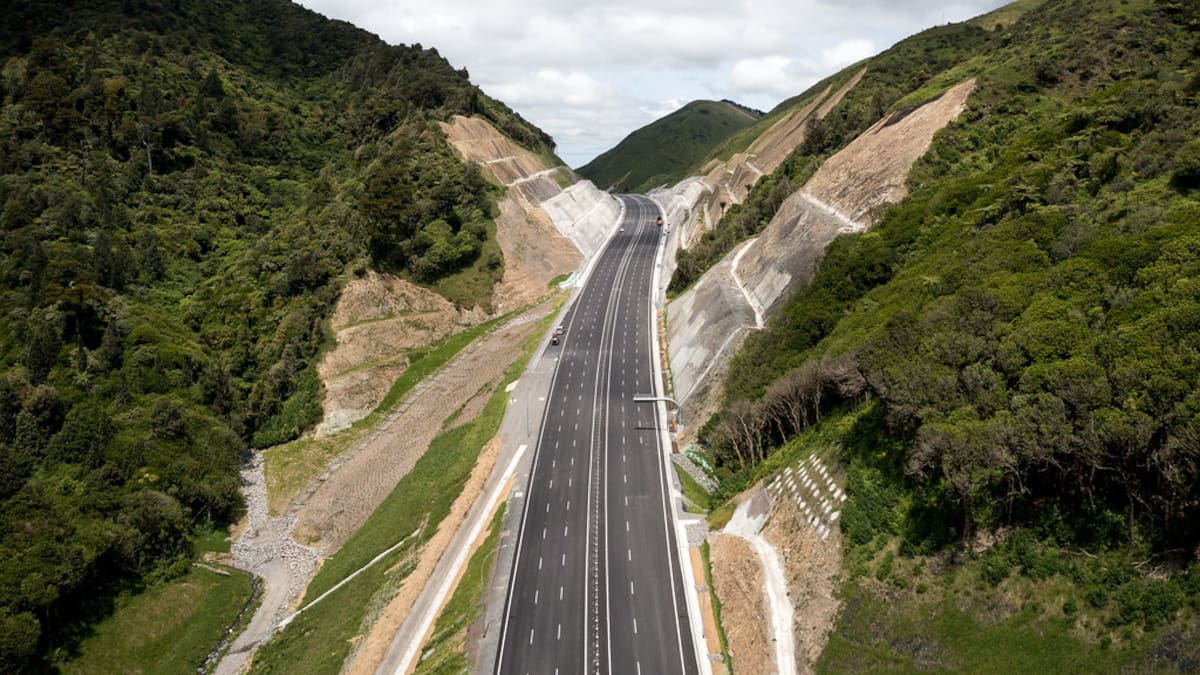“Resurfacing and rebuilding work will continue on Transmission Gully as part of future summer maintenance seasons. The specific work programme for future seasons has not been finalised,” a spokesman for the agency said.
The road was built under a Public Private Partnership (PPP), but incomplete works ended up being the subject of legal action in the High Court between NZTA and the private road-builders.
The matter was ultimately settled outside court in late 2024, with the ongoing operations and maintenance being brought in-house by the agency.
Details of the settlement remain confidential but those funds will be used to complete the project, while maintenance and repairs continue to be funded through the National Land Transport Fund.
Transmission Gully during construction. Photo / Mark Mitchell
This summer’s work is is expected to cost about $32m, funded as part of the PPP arrangement.
The road, the construction of which had been debated for more than 100 years, was officially started in 2014.
The build’s setbacks included years of budget blowouts and delays due to Covid-19, severe weather events and the Kaikōura earthquake.
By 2022, there was a desire to get the road open and iron out problems later.
Disruption is expected from next week as work gets under way from November 4 until mid-February next year.
“This work will require lane closures, road closures and speed restrictions,” NZTA announced this week.
About 6km of the 27km highway will be rebuilt this summer, a drop from the 20 lane kilometres the agency previously said needed work.
Another 18km will be resealed this summer due to faulty chip-sealing, which is causing waterproofing issues.
Detours will be in place on State Highways 59 and 58 when Transmission Gully is closed.
The road resurfacing work must take place over the warmer months, NZTA’s website states.
The works will help bring the highway up to standard for a speed limit increase to 110km/h.
The public want travel on Transmission Gully to be quicker but a decision on raising the speed limit for the unfinished highway will still take 6-12 months.
The Herald revealed earlier this month more than 90% of commuters support the increase, including the Transport Minister, but a long-touted speed limit increase will not happen soon as officials work through a bureaucratic process to consider the increase.
NZTA‘s website states the full decision-making process on a speed increase can take between six and 12 months, depending on scoping, design and funding for necessary infrastructure.
That decision must be made independently by the agency’s director of land transport, Brent Alderton.
It is unclear how long it will take for the limit to go up once the decision has been made.
Ethan Manera is a Wellington-based journalist covering Wellington issues, local politics and business in the capital. He can be emailed at ethan.manera@nzme.co.nz.

